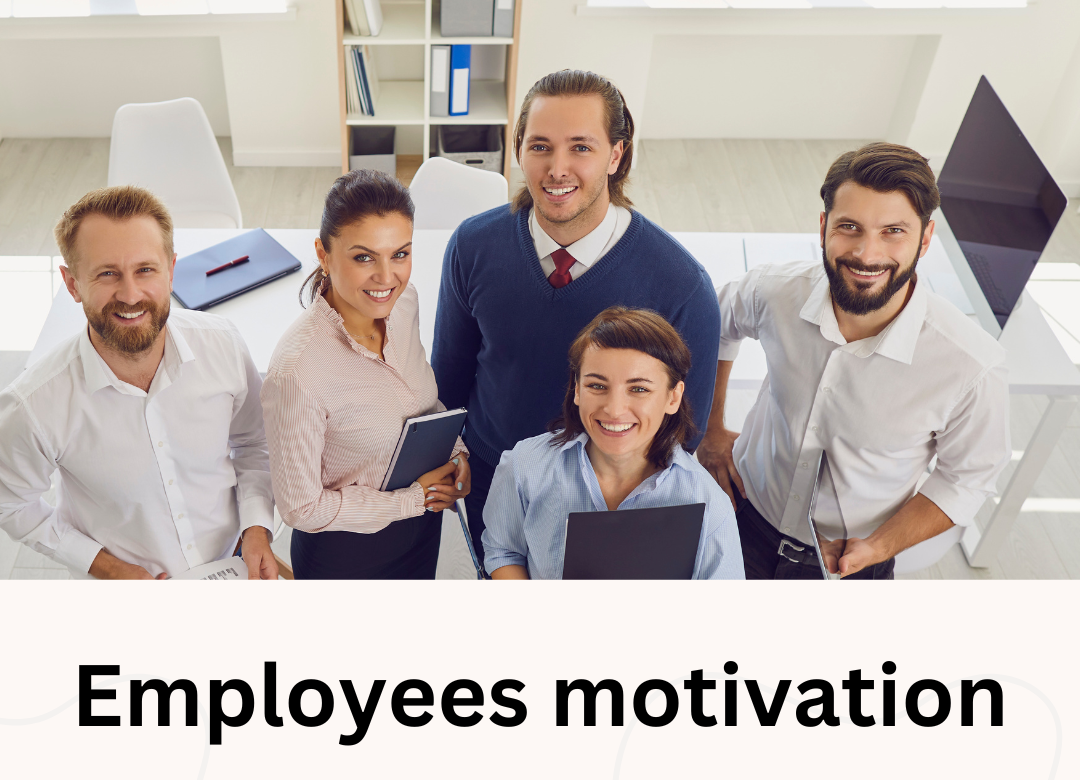What is employee motivation?
Employee motivation is the degree to which employees feel inspired, energized, and engaged with their work and their organization. Employee retention is the ability of an organization to keep its employees from leaving or quitting.
What are the benefits of employee motivation?
Employee motivation and retention are closely related and can benefit both employees and employers by:
Improving performance, quality, and customer satisfaction by enhancing employees’ competencies and abilities.
Enhancing learning and development by providing opportunities for employees to grow their skills and careers.
Increasing engagement and loyalty by showing employees that they are valued and supported by their employers.
Fostering a culture of innovation and collaboration by exposing employees to new ideas and perspectives.
Some ways that employers can improve employee motivation and retention are:
1.Providing a clear vision and direction for the organization and its employees.
2.Communicating and motivating employees to pursue their goals.
3.Planning and organizing work that is meaningful, challenging, and rewarding
4.Delegating and empowering employees to take charge of their own work
5.Coaching and mentoring employees to enhance their skills and performance
6.Problem-solving and decision-making when challenges or issues arise in the work process
7.Evaluating and rewarding employees for their work outcomes
8.Offering flexible schedules, work-life balance, and wellness programs
9.Creating a positive work environment that is safe, respectful, and fun
10.Soliciting feedback and suggestions from employees and acting on them
These are some aspects of employee motivation and retention.
Employee motivation skills:
Employee motivation is the degree to which employees feel inspired, energized, and engaged with their work and their organization. Employee retention is the ability of an organization to keep its employees from leaving or quitting. Employee motivation and retention skills are the abilities that employers and managers need to foster a positive and healthy work environment that attracts and retains employees.
Some ways that you can improve your employee motivation and retention skills are:
Provide a clear vision and direction for the organization and its employees: Employees need to know what the organization stands for, where it is going, and how their work contributes to its goals. You can improve your skill of providing a clear vision and direction by communicating frequently and transparently with your employees, involving them in the strategic planning process, and aligning their individual and team goals with the organizational goals.
Communicate and motivate employees to pursue their goals: Employees need to feel that their work is meaningful, challenging, and rewarding. You can improve your skill of communicating and motivating by providing regular feedback and recognition to your employees, celebrating their achievements and milestones, and offering incentives and rewards that match their preferences and needs.
Plan and organize work that is meaningful, challenging, and rewarding: Employees need to have a sense of autonomy, mastery, and purpose in their work. You can improve your skill of planning and organizing by designing work that is varied, interesting, and relevant to the employees’ skills and interests, providing opportunities for learning and development, and creating a culture of innovation and collaboration.
Delegate and empower employees to take charge of their own work: Employees need to have a sense of ownership, responsibility, and accountability in their work. You can improve your skill of delegating and empowering by trusting your employees to make decisions and solve problems, providing them with the resources and support they need, and encouraging them to take risks and learn from failures.
Coach and mentor employees to enhance their skills and performance: Employees need to have a sense of growth, development, and career progression in their work. You can improve your skill of coaching and mentoring by providing constructive feedback and guidance to your employees, identifying their strengths and areas for improvement, and facilitating their career development plans.
Problem-solve and decision-make when challenges or issues arise in the work process: Employees need to have a sense of security, stability, and resilience in their work. You can improve your skill of problem-solving and decision-making by identifying potential risks or threats to the organization or its employees, analyzing the causes and consequences of the problems or issues, generating alternative solutions or actions, evaluating the pros and cons of each option, selecting the best option based on evidence or criteria, implementing the solution or action effectively, monitoring the outcomes or results, reviewing the process or performance.
Evaluate and reward employees for their work outcomes: Employees need to have a sense of fairness, justice, and appreciation in their work. You can improve your skill of evaluating and rewarding by measuring your employees’ work outcomes or results against the established standards or expectations, providing honest and accurate feedback on their performance, recognizing their contributions or achievements publicly or privately, rewarding them with monetary or non-monetary incentives that are consistent with their performance level.
Offer flexible schedules, work-life balance, and wellness programs: Employees need to have a sense of balance, well-being, and happiness in their work. You can improve your skill of offering flexibility by allowing your employees to choose when, where, how they work based on their preferences or needs, providing them with adequate time off or breaks from work, supporting them with wellness programs that address their physical, mental, emotional health.
Create a positive work environment that is safe, respectful, fun: Employees need to have a sense of belongingness,
Next Innovation Asia


